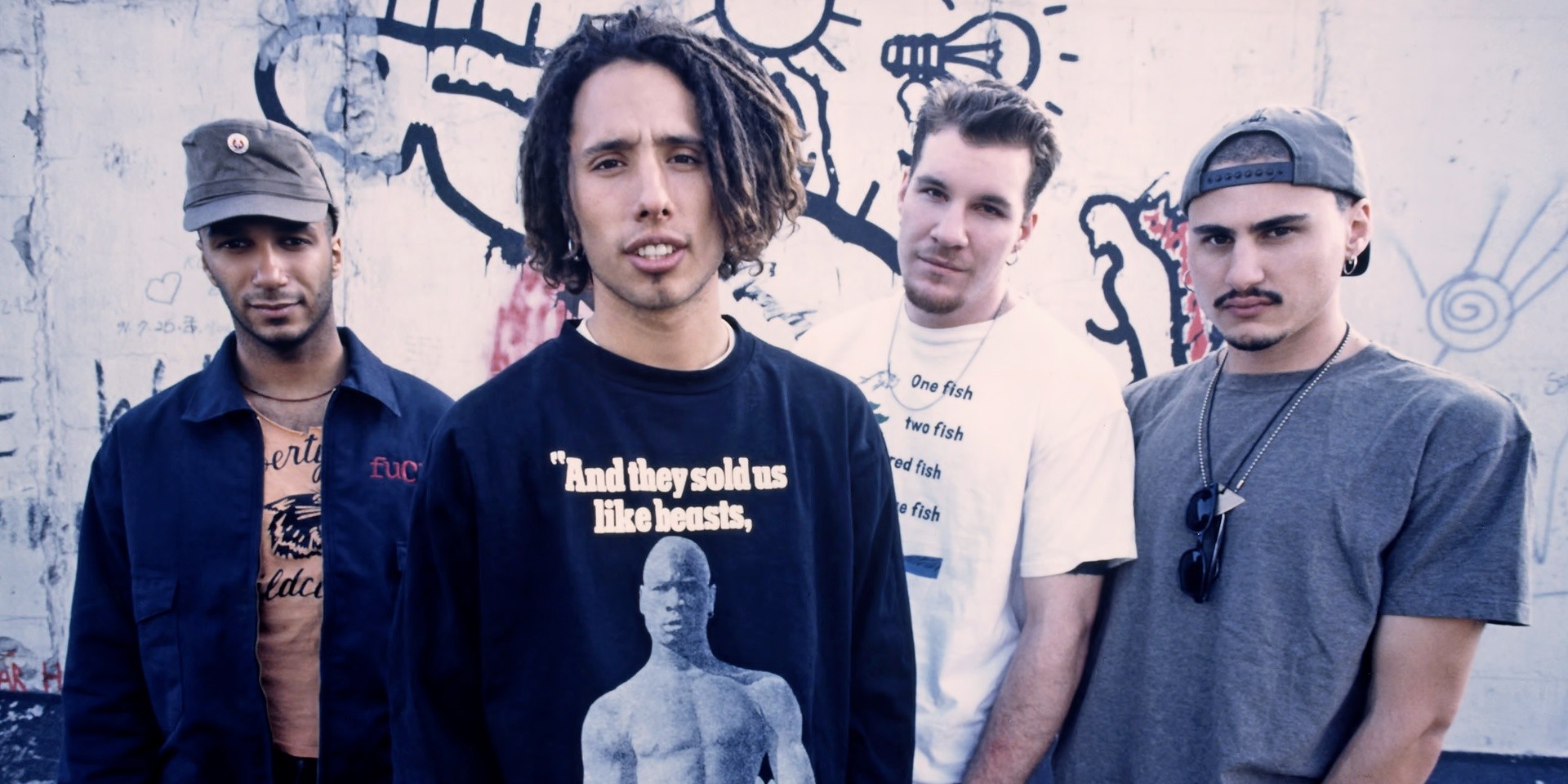Every Thursday, Bandwagon throws back to a seminal album of yesteryear for our younger readers to explore and for our older readers to reminisce. We’ll be picking out some absolutely essential records, spanning all genres and all time, and discussing their significance from a modern day perspective — whether they were immediate hits or made an impact only decades after its release.
These days, the term "rap-metal" is often derided and made fun of thanks to a glut of corny early-2000s nu-metal bands who copped that style. Made up of agro suburban white boys whose childish posturing bore little similarity to either rap or metal's heritage, its easy to see how the genre became kind of a joke. But while everybody is so ready to laugh at Limp Bizkit, the band that innovated that sound is no laughing matter at all.
A decade before nu-metal ever came about, Rage Against The Machine was already around and kicking ass the right way, and decades after all those nu-metal copycats were gone, Rage Against The Machine are still revered as one of the smartest and best heavy bands of all-time. Albums such as Evil Empire and The Battle Of Los Angeles built their radical legacy with a combination of heavily politicized lyricism and searing shredding, but it was their grenade of a debut that started it all.

"Unlike their nu-metal successors, Rage Against The Machine actually knew what they were talking about. Taking his cues from kindred hip-hop spirits like Public Enemy, frontman Zack de la Rocha was a well-read and well-informed revolutionary rapper, whose poignant poetry and hard-hitting delivery lingered through repetition and fury. In turn, mad scientist guitarist Tom Morello thrilled with his six-string acrobatics and unique turntablist-style special effects."
Rage Against The Machine's self-titled 1992 album still remains their best work, and a quarter of a century later, the album still holds up amazingly well. If anything, the themes explored here are more relevant today than they ever were during the relatively peaceful Clinton administration. These collection of tracks essentially amount to incredibly literate and incredibly heavy protest songs, drawing leftist inspiration from activists such as Provisional IRA hunger striker Bobby Sands and Black Panther Party founder Huey P. Newton.
Unlike their nu-metal successors, Rage Against The Machine actually knew what they were talking about. Taking his cues from kindred hip-hop spirits like Public Enemy, frontman Zack de la Rocha was a well-read and well-informed revolutionary rapper, whose poignant poetry and hard-hitting delivery lingered through repetition and fury. In turn, mad scientist guitarist Tom Morello thrilled with his six-string acrobatics and unique turntablist-style special effects. And as much as the band owed a lot to 80s metal, there is an enduring sense of funk present as well, serving as the groove for Rocha's rebel verses.
Insurrectionist anthems like 'Bombtrack', 'Know Your Enemy' and 'Take The Power Back' introduced their ideologies, while their particularly fevered and vicious tracks like 'Wake Up' and 'Killing In The Name Of' served as the band's rallying cry to the people (F*ck you, I won't do what you tell me). However, its their quieter (and more underrated) tracks like 'Fistful Of Steel' and 'Settle For Nothing' where the band's style and message truly shine, allowing space for Rocha's poetry and Morello's virtuosity to really make their mark.
Rage Against The Machine were a band that was urgent, hostile and ultimately uncompromising. From the second you laid eyes on their debut album's cover art, featuring a photo of a Saigon monk named Thích Quảng Đức setting fire to himself in 1963 (in protest of Vietnamese President Ngô Đình Diệm's oppression of the Buddhist religion), you knew their music going to be heavy in theme and sound, and its that visceral sense of confrontation that still resonates till this day.
If you like this, you'll also like: Audioslave's Out of Exile, Deftones' White Pony, Cypress Hill's Black Sunday
Like what you read? Show our writer some love!
-

